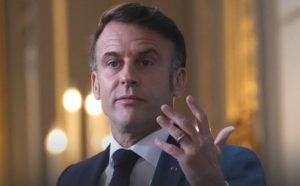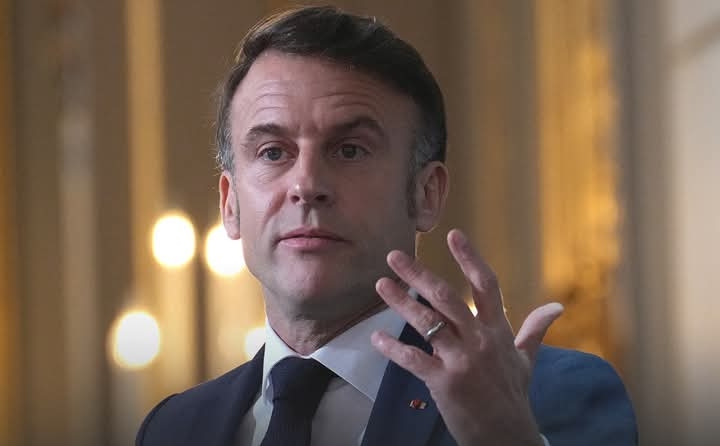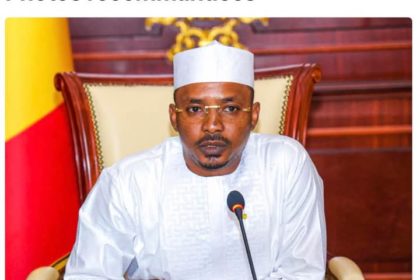
By Adeyemi Adekunle
Chadian authorities and other African leaders have strongly condemned French President Emmanuel Macron’s recent remarks, accusing him of displaying arrogance and disrespect toward Africa.
The escalating diplomatic fallout follows Macron’s assertion that certain Sahel nations would not “have sovereign states” without France’s military intervention and his lament that African leaders had “forgotten to say thank you” for French support against jihadist insurgencies.
Speaking during an annual conference on foreign policy for 2025, Macron justified France’s military role in the Sahel, portraying it as indispensable for regional stability. However, his comments have sparked widespread backlash, intensifying already strained relations between France and several African nations.
Chad’s Foreign Affairs Minister, Abderaman Koulamallah, voiced his government’s “deep concern” over Macron’s statements. In a televised address, Koulamallah stated that the French president’s remarks reflected “a contemptuous attitude towards Africa” and underscored a lingering perception of paternalism in Franco-African relations.
Koulamallah sought to clarify that Chad bore no ill will toward France as a country but emphasized that French leaders needed to “learn to treat Africans with respect.” Such statements, he warned, undermined the progress needed to foster equitable partnerships between African nations and their European counterparts.
Adding to the criticism, Senegalese Prime Minister Ousmane Sonko released a strongly worded statement on social media, firmly rejecting Macron’s characterization of French withdrawals from Africa as a strategic “reorganization.” Sonko stated, “France has neither the capacity nor the legitimacy to assure Africa’s security or sovereignty,” and dismissed Macron’s remarks as “completely false.”
He argued that Senegal’s decision to reassess its relationship with France was made independently, reflecting its own national interests as a sovereign country. He denied any negotiations with France regarding the decision, asserting that Senegal acted out of determination to ensure its own path.
The backlash comes as France continues to withdraw troops from Mali, Niger, and Burkina Faso, nations where deteriorating relations following military coups have pushed Paris to end its long-running counter-terrorism operations.
The military departure marked the closure of Operation Barkhane, France’s flagship intervention to combat jihadist threats in the Sahel. However, these withdrawals have been widely interpreted as reflecting dwindling French influence in a region historically dominated by its presence.
Macron, addressing speculation over whether these events signify that France has been “kicked out” of the Sahel, insisted that the moves were part of a strategic reassessment. “No, France is not on the back foot in Africa,” Macron stated. “It is just lucid and reorganizing itself.”
Despite his insistence, critics argue that the exits, combined with anti-French protests across West Africa, highlight the limits of France’s long-standing role as a self-proclaimed stabilizer.
The controversy over Macron’s remarks has reignited broader debates about France’s legacy in Africa. Critics see France’s military presence as fostering dependency while perpetuating paternalistic attitudes. This view has gained traction in light of growing efforts by African nations to diversify their alliances and redefine their relationships with former colonial powers.
Mali has notably turned to alternative security partnerships, including with Russia and the controversial Wagner Group, after severing ties with France. Similar moves to limit France’s influence have emerged in Niger and Burkina Faso, where coups brought military leaders to power who are less willing to align with Paris. The perception of France as an overbearing force prioritizing its own strategic goals has fueled public dissent in these nations, further weakening its foothold in the region.
Macron’s remarks underscoring France’s purported indispensability have added fuel to these frustrations. African leaders and experts argue that such statements overlook the increasing autonomy of African nations, which are actively asserting their sovereignty in global and regional affairs. They note that Africa’s growing engagement with other powers such as China, Turkey, and Russia, along with stronger intra-African cooperation, is gradually reshaping the continent’s geopolitical dynamics.
Chad, Senegal, and other nations seeking to define their security strategies are aligning their policies with national interests rather than historical obligations. Koulamallah’s response, as well as Sonko’s unequivocal statement, underscore an emerging desire across the continent to move beyond the shadow of colonial-era alliances. For many African leaders, Macron’s remarks have reinforced the perception that France is struggling to adapt to the evolving realities of its role in Africa.
As France proceeds with troop withdrawals from Chad, Senegal, and Ivory Coast, its efforts to redefine its presence in Africa will undoubtedly face challenges. Analysts observe that Macron’s insistence on portraying France as indispensable risks alienating countries that demand respect and equality. What many African leaders are emphasizing now, according to Dr. Ibrahim Guindo, an expert in African geopolitics, is “a desire for balanced and mutually beneficial partnerships. Macron’s comments only serve to deepen mistrust.”
The fallout from Macron’s statements also holds implications for France’s broader foreign policy goals on the continent. Beyond military cooperation, France maintains deep economic and cultural ties with its former colonies, which could be jeopardized if tensions continue to escalate. Diplomats and analysts alike warn that Macron’s perceived paternalism may hasten Africa’s pivot toward more diversified partnerships with nations that offer cooperation based on mutual respect and practical benefits.
While Macron reiterated France’s commitment to African prosperity and stability during his foreign policy address, his comments have underscored the challenges of maintaining a constructive relationship with African nations in an increasingly multipolar world. Whether France can adapt to a new era of partnerships rooted in sovereignty and equality remains uncertain.
For Africa, however, the rift may signal a turning point—one in which nations assert their independence more decisively, reshaping the power dynamics that have long defined their relationships with external powers.




